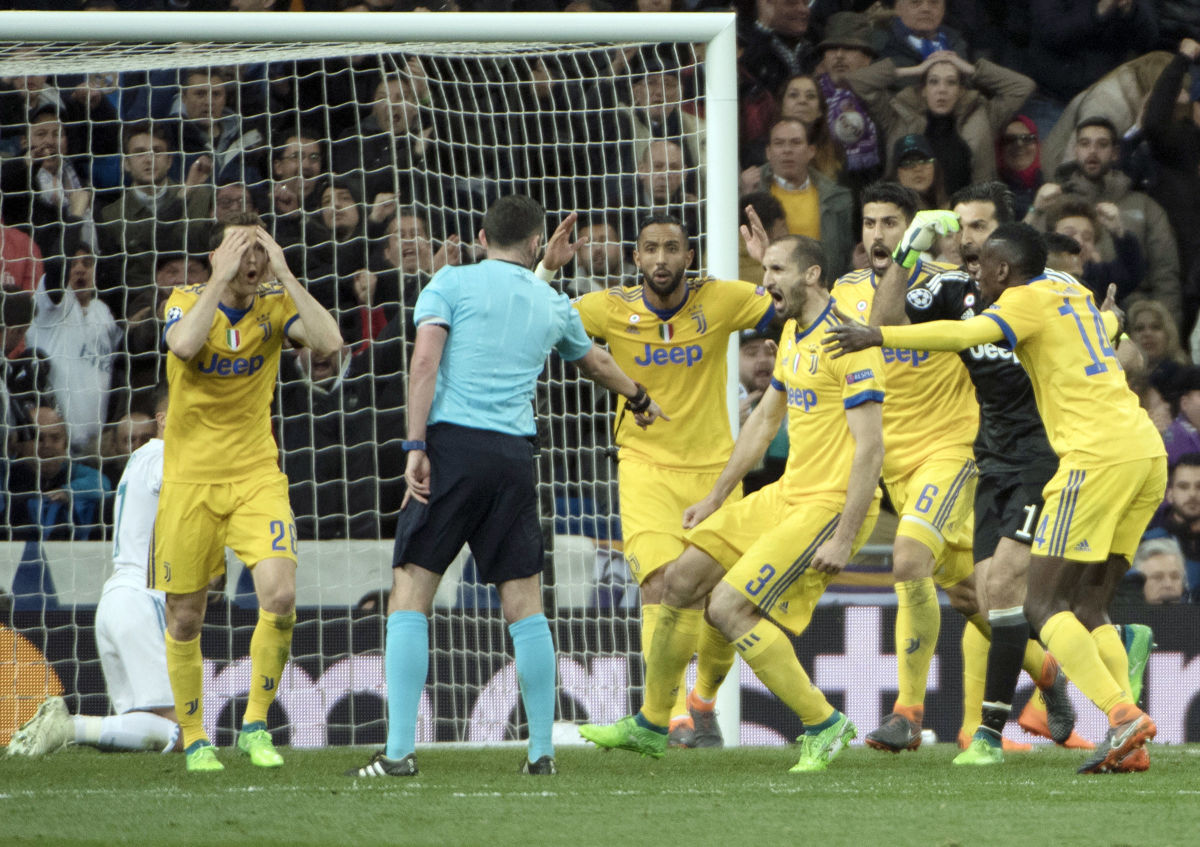Why Europe's Unhealthy Obsession With the Champions League Is Ruining Domestic Football

On Saturday, the footballing world will be drawn to Kiev as Real Madrid - looking for their third consecutive elite European crown - face Liverpool in the Champions League final. An occasion that could be as historic in the Spanish capital as the late 1950s or prove to be as memorable as the mid-2000s on Merseyside.
There is no doubt the competition possesses grand appeal to the masses; being afforded the opportunity to witness some of, if not the best players in the world take on one another for the 'biggest club prize' on the continent. But at what cost does this sacrifice bring to the rest of the sport? Is the Champions League, in fact, proving detrimental to the domestic game?
42 points is the collective deficit between Real Madrid, Liverpool and their respective league winners - Barcelona and Manchester City - a substantial gulf, considering one will be crowned the 'Kings of Europe' next weekend. In truth, that title is as reflective as claiming Chelsea surpassed Pep Guardiola's outfit this campaign as they lifted the FA Cup trophy under Wembley Stadium's arch, or citing Portugal as the best team in Europe due to their stumbling to glory at the European Championships in 2016.
Real Madrid finish 3rd in Spanish Liga after 2-2 draw at Villarreal in their final game.
— UEFA Champions League (@ChampionsLeague) May 19, 2018
Bale and Ronaldo score - will they do the same in #UCLfinal?#UCL pic.twitter.com/VoouctJKhs
The very concept of the word 'league' is unfounded in itself. If the tournament was, in fact, a 38-game cycle, as both partake in week-to-week, it could feasibly be suggested that neither would be in the situation they are currently preparing for.
West Ham United, Southampton, Crystal Palace, Girona, Leganes and Espanyol are all sides who have taken points from their respective opponents over the course of the campaign; not exactly a list brimming with European pedigree. And it is that inconsistency which highlights why although one will lift the silverware towards Ukraine's night sky on Saturday, neither can lay claim to being Europe's true kings.
In cup football, which indeed is what the Champions League is, luck plays as significant role as any other. Whether it be a last-minute penalty decision awarded in your favour despite appearing questionable, or an offside ruling going your way against a side who have portrayed their ruthless nature in the past; every 180 minutes during the latter rounds must possess an air of good fortune for one particular side.

However, it is not merely a label or an unfounded perception which provokes the most significant issue where the Champions League is concerned, but more so the influence the tournament has across a broader spectrum in domestic football.
Arsenal fans will tell you, Stan Kroenke and Arsene Wenger's obsession of securing a place in the top four each year - therefore assuring themselves of high-level European football, no matter the sacrifices made elsewhere - has created nothing but humdrum monotony at the Emirates Stadium, eventually proving to be the final catalyst in the Frenchman's demise as their participation dried up.
Antonio Conte; another whose position in the Premier League is under threat due to, among other things, Chelsea's failure to retain Champions League football for another season, despite clinching their eighth FA Cup success - the fifth of the Roman Abramovich era.
But maybe more significantly is the current unrest at Camp Nou, a stadia which is home to both the league title and Copa del Rey for another term. Incredibly, despite Ernesto Valverde guiding Barcelona to a near-unbeaten campaign - in a season where, after the Spanish Super Cup humiliation at the hands of Real Madrid in August, supporters had all but conceded the league silverware - a significant portion of the Catalonians want change.
Barça has suffered some real embarrassments under valverde
— BarçaTimes (@BarcaTimes) May 14, 2018
✅Humiliated in the super copa
✅lost 3-0 To Roma
✅lost 5-4 To levante(first time losing since 1964)
✅Emmanuel Boateng is the first player to score a hat-trick against Barça in since Diego Forlan in May 2005
"If you're a Barcelona fan and still support Valverde, I have no words for you and you are a disgrace."
"I've been defending Valverde against the many Barca fans calling for his head all season, but now he's crossed that line. He sacrificed the Champions League for an unbeaten season and now has neither. This season has been a disaster."
So, what is the foundation of this unhappiness? Simply, the lack of Champions League success.
Although Blaugrana secured their seventh league title in a decade and lifted the King's Cup for the fourth consecutive year, a competition which seems to possess a be-all and end-all stigma - yet takes less skill to top compared to a 38-game season, and arguably as much as any other knockout tournament - provokes an unhealthy obsession of shortsightedness and ridicule.
Somewhat upsettingly, it would be no great surprise to see Valverde leave Barca this summer; whether that be at the Spaniard's own free will or not would matter little. The perception that without European glory a top manager cannot be a success is near sickening - as is always remembered during Guardiola's time with Bayern Munich and could also be the case at the Etihad Stadium in time to come.
But undoubtedly the gravest aspect of it all is the elite's fixation of the Champions League, and the demand that comes alongside is slowly driving football towards that of a continental year-round, worldwide showpiece - effectively bringing an end to the domestic game. Whether that proves to be the case in the short-term is unlikely, but inevitably, that is where this road ends, and it could already be too late to deviate from the final destination.
